
The KINGDOM CLARION
By Larry W. King
Volume II, Number XII
May 11, 2009
Be The Clay!
“Go down to the potter’s shop, and I will speak to you there. So I did as he told me and found the potter working at his wheel. But the jar he was making did not turn out as he had hoped, so he crushed it into a lump of clay again and started over. Then the Lord gave me this message: ‘O Israel, can I not do to you as this potter has done to his clay? As the clay is in the potter’s hand, so are you in my hand’.” – Jeremiah 18: 2-6 (New Living Translation).
In our text, God instructs Jeremiah, the “weeping prophet”, through the commonplace work of a potter. Jeremiah has drawn the unpopular and likely unpleasant assignment of telling God’s chosen people (Israel) that the Lord is displeased with their long-term disobedience and will utterly destroy the kingdom. While God Almighty will eventually rebuild, reshape and reform Israel into a kingdom which properly obeys and pleases Him, that process will take generations. Nobody who hears this woeful “Jeremiad” will be around for the reconstruction. Needless to say, it’s probably NOT exactly a message Jeremiah is amped about bringing to folks who were already sick and tired of his continual prophecies of doom and gloom!
Cherished reader, please permit me a brief personal digression here. I PROMISE I will tie things together at the end of this issue …
Objectively speaking (i.e. NOT from the obviously biased viewpoint of being his younger son), my father, the late Dr. Norman W. King, was an extraordinary man. For me, he epitomized the modern-day “Renaissance Man”. He was a PhD psychologist who taught at several well-known institutions of higher learning around the Midwest (including The Ohio State University, Wittenberg University, Lindenwood College and Capital University), also teaching Hebrew and Greek at Aenon Bible College in my hometown of Columbus, Ohio.
My Dad truly LOVED music and could play piano, viola and trombone. Indeed, we played together in a community orchestra in St. Charles, Missouri – he on viola and me on the bassoon. Each week, he’d bring home records borrowed from the library, which exposed me to a wide range of music from classical and opera to jazz, etc. I have no doubt that exposure was fundamental in nurturing MY love of all kinds of music, and to being a professional musician today.
Dad was a veteran - serving his country honorably as a Quartermaster in World War II. Moreover, he was a very practical man who was surprisingly good with his hands. He was excellent in the kitchen, having worked as a short-order cook before getting his doctorate. Among other things, he was also employed as a crane operator. He could do plumbing and electrical work and was an outstanding gardener. Regrettably, none of those talents were passed on to yours truly! ;>)
Finally, while teaching at Lindenwood College in St. Charles, Dad began to pursue various creative projects in his spare time. He welded beautiful candelabras out of leftover copper rods and scrap metal. He crafted letter holders, jewelry boxes and small furniture items in the wood shop, and he fashioned pots, bowls and other vessels from clay on a pottery wheel. He’d often take me to the welding, wood or clay shops, to observe, learn and play while he worked. This was how I became well-acquainted with the potter’s wheel.
Make no mistake, reader. Creating earthenware vessels at the pottery wheel is HARD work! First of all, in those days (before electric wheels became popular) the turntable itself was driven by a mechanism you had to “pump” using both feet. As a kid, it seemed to me that thing had a gear which felt like 13th on a 10-speed bicycle!
Second, potter’s clay generally comes in large “bricks” which are VERY hard. You have to soften up the bricks with both hands and with many applications of clear water to eventually form it into a lump which subsequently can be shaped and transformed on the spinning wheel. This process leaves your hands, wrists, arms, etc. quite sore and usually covered with clay. One must wear a smock or overalls while working at the wheel. Why? Because, otherwise you’d ruin your clothes, as dried clay stains simply do NOT wash out.
Third, using the wheel skillfully takes PRACTICE. I “messed up” frequently. After each failure (e.g. cereal bowls with one side grossly caved-in, drinking glasses leaning at angles far more acute than the Tower of Pisa, dinner plates with multiple holes in them, surreal asymmetrical flower pots, etc.), to my Dad’s grinning amusement, I’d have to use more water and clay to manually reform my lump and start all over.
Even after you’ve succeeded in shaping something useful on the wheel, it’s still just well-formed, soft wet clay. For it to hold its shape you must “fire” it in a kiln – basically, a very hot oven or furnace which dries the clay within several minutes. Kiln firing bakes the vessels and begins to prepare them for everyday use. However, while kiln-baked clay does maintain the desired form or shape, it is extremely porous and simply won’t hold water.
Waterproofing earthenware requires glazing. To properly glaze your work means carefully brushing or painting on several layers of this thick, oozy, gooey stuff - which has a consistency somewhere between airplane glue and black strap molasses. The glaze is very sticky and it must be allowed to DRY between coats. Again, skillful glazing requires a lot of practice before you can get it done without getting glaze everywhere EXCEPT on the pot! Like the clay – much to my dear Mother’s chagrin - dried glaze stains didn’t wash out either.
Finally, though your flower pot is formed, kiln-dried and glazed it remains the color of clay - gray or dark orange-brown – not particularly attractive. You gotta PAINT it! Of course, most of us have had some experience with artistic painting. Suffice to say, I was NO Picasso then, nor am I now!
Patient reader, I hear you asking “OK, Lareezy, is there ANY point to all this rambling?” Excellent question! I’m so very glad you asked. My points are these:
1) Spiritually speaking (at least early in our Christian experience), WE are very much like lumps of clay - basically soft, misshapen, dull-colored and not particularly useful for much of anything except staining, discoloring, tainting and generally ANNOYING everyone/everything around us.
2) Our Heavenly Father labors patiently but diligently to shape us spiritually into forms which can effectively accomplish His Divine will - building His kingdom, ministering unto His people, spreading His good news and so on.
3) Even when we’ve become well-formed Christians, in order to harden us against the assaults of the adversary, God must put us through the fiery furnace of trials and tribulations. In this way, He refines out our impurities and strengthens us – glazing us with a thick, smooth, protective coating of His precious Holy Spirit.
4) Finally, the Creator of the Universe must paint us into His beautiful, artistic vision and image through frequent dialogue. This includes daily prayer, meditation and reading of His Word, corporate worship, tithing of our treasure, time and talents, fasting, self-discipline, honor, justice, mercy, peace and above all LOVE for all that is His creation.
When it comes to being/becoming a vessel fit for the Master Potter’s use, my daily prayer and desire is: Lord, today and every day please let me … Be The Clay!
---------------------------------------------------------------------------------------------------------------------------------
Larry W. King is a graduate of the University of Cincinnati College-Conservatory of Music (Magna cum Laude) and heads the Denver-based music group, Kingdom Kru. He serves as Minister of Music at Faith Community Baptist Church under the leadership of co-pastors Rev. Douglas and Katherine Farley.
_______________________________________________

























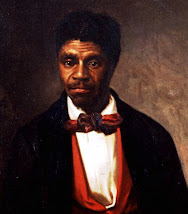




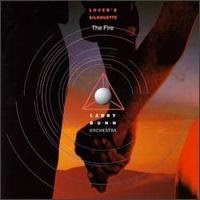


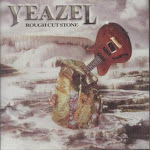

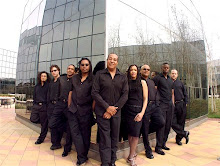
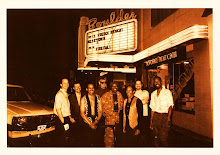
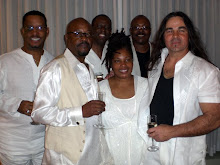











No comments:
Post a Comment